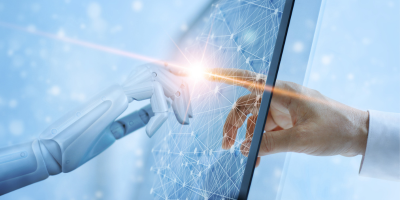Technology is changing the way we do things every day. It's also having a huge impact on healthcare. Technology will cause advancements in medicine, and prevention of diseases through analysis of big data and the internet of things.
Advancements in medicine
Advances in medicine will include new imaging technology that can detect diseases at earlier stages, allowing for better treatment. This is due to the ability to capture more detail than before and analyse it faster.
Additionally, external sensors will be able to monitor our health more accurately than ever before—like a Fitbit that reads your heart rate without having to wear a bulky device on your wrist. It will also be possible for these devices to communicate with each other, so that if someone has an abnormally high heart rate, their doctor could be alerted right away.
The advances in genetics are also leading us towards personalised medicine: drugs and vaccines tailored specifically for you based on your genetic makeup.
Using technology for prevention
Technology is already helping people stay healthy with the use of wearable devices, such as those that monitor heart rate and blood pressure. These devices can help you learn about your body and how different activities affect it so you can make healthier decisions in the future.
When doctors detect a health problem early, they're able to provide more effective treatment than if they had found it later on. With technology like diagnostic equipment that uses artificial intelligence (AI) or machine learning algorithms to detect diseases such as cancer, it's possible for them to identify abnormalities before symptoms appear—which means faster diagnosis times and better outcomes for patients.
AI is also being used to help doctors treat their patients more efficiently by providing real-time feedback about their progress after surgery or other procedures.
The internet of things
The Internet of Things (IoT) refers to a network of connected devices, including smartphones, laptops and smartwatches. The IoT will have a huge impact on healthcare in the future, as it will allow for more precise monitoring of patients' health conditions. For example, wearable fitness trackers can be used to monitor heart rate and blood pressure. This could help doctors prescribe medication based on how an individual's body reacts to exercise differently from others.
Big data and machine learning
Machine learning is a subset of artificial intelligence that's used in healthcare to predict outcomes, detect anomalies, and make recommendations for treatment. The ability to analyse large volumes of data has led to better understanding of how diseases progress and what treatments work best for each disease.
Technology will have a huge role in the future of healthcare
-
It will help to diagnose and treat patients more efficiently.
-
It will allow patients to take control of their own health by using devices such as smart watches and apps that can monitor their vitals and keep track of medications they are taking, resulting in higher rates of compliance with treatment plans.
-
It can also help healthcare professionals work more efficiently by automating some tasks so they have more time for face-to-face interactions with patients, which results in improved quality of care.
Conclusion
While the future of healthcare is uncertain, it's clear that technology will play a huge role in how we manage our health and stay healthy. The internet of things and big data are just two examples of technologies that can be used to improve healthcare outcomes in ways we haven't even imagined yet.

